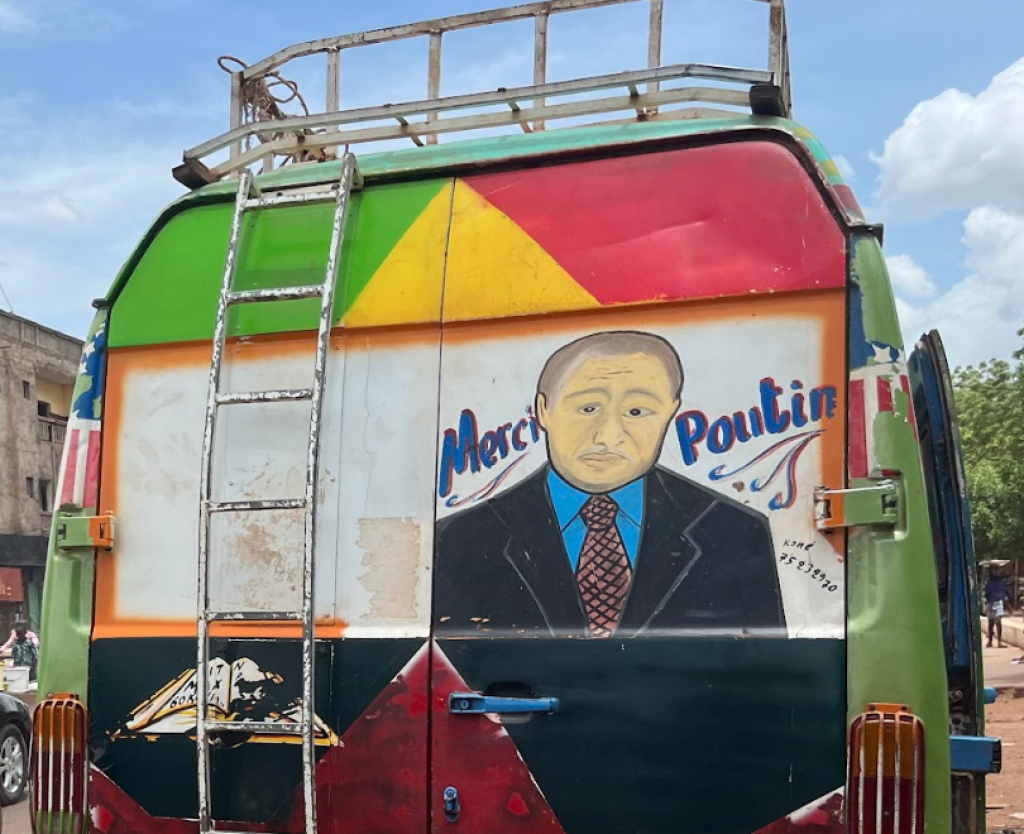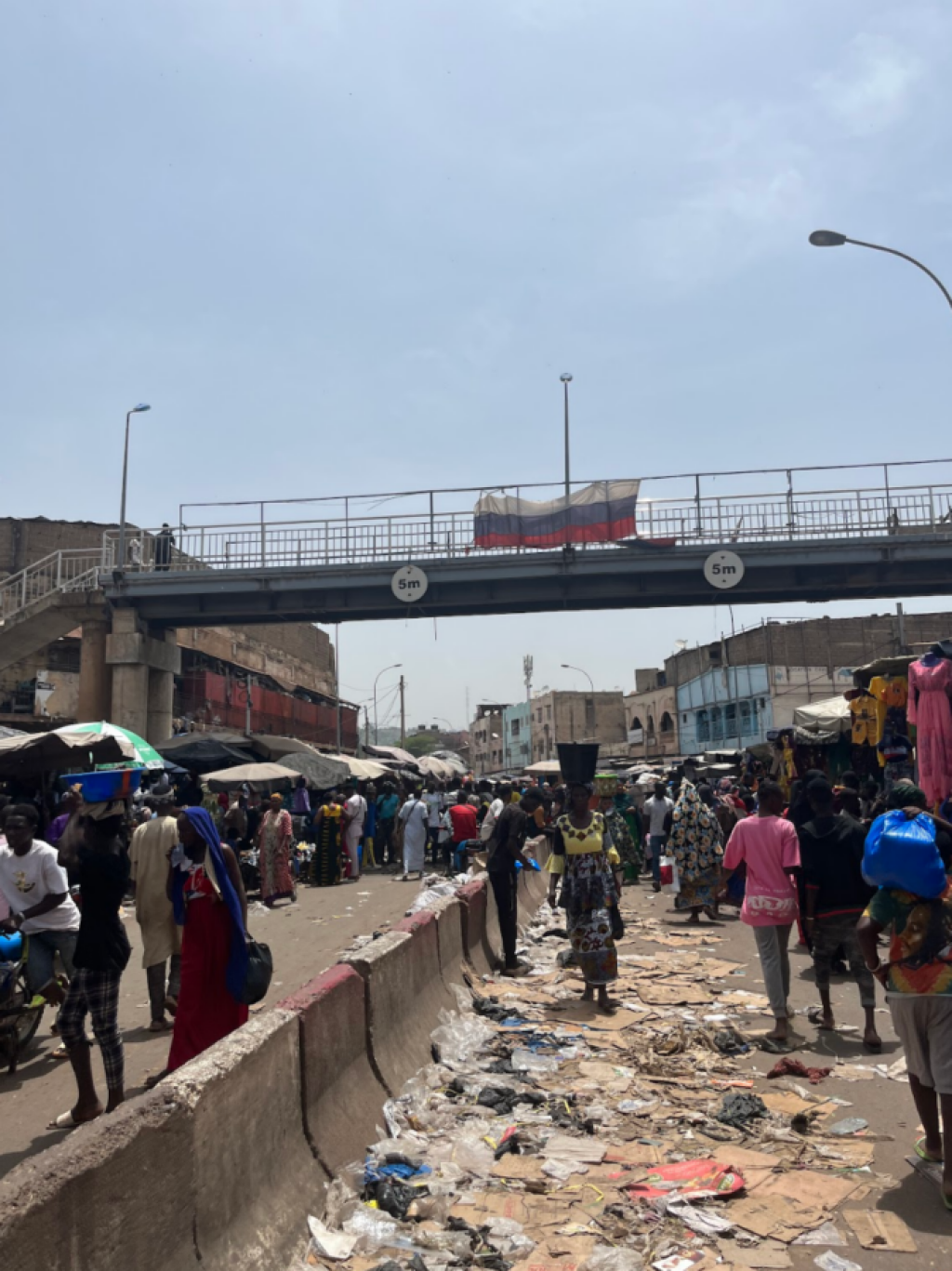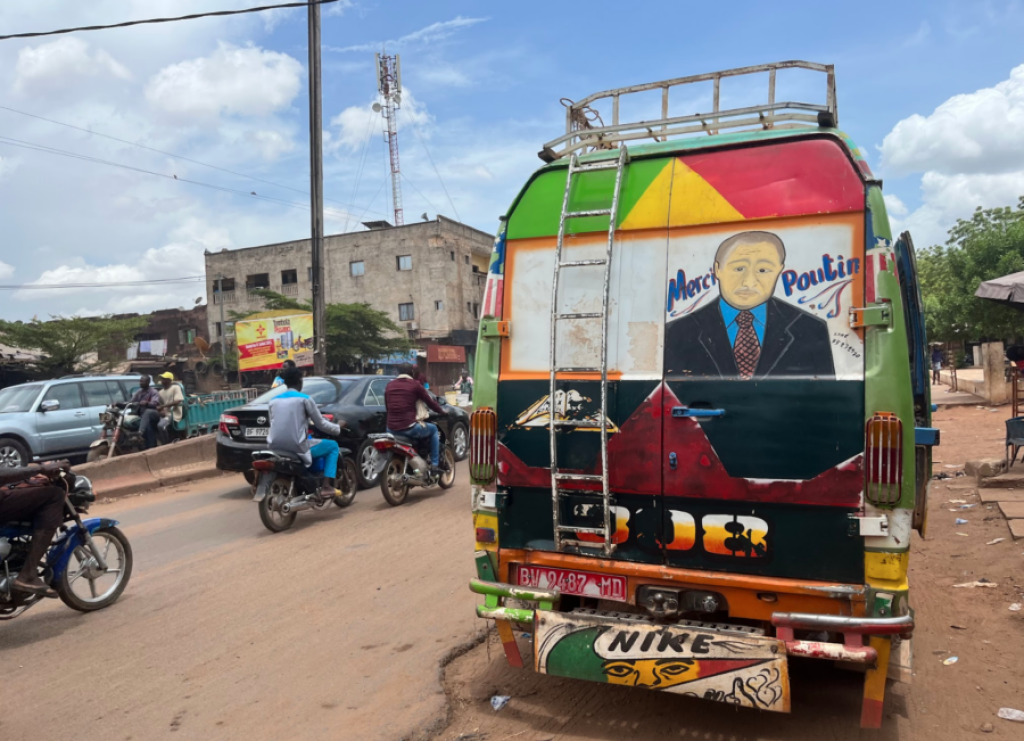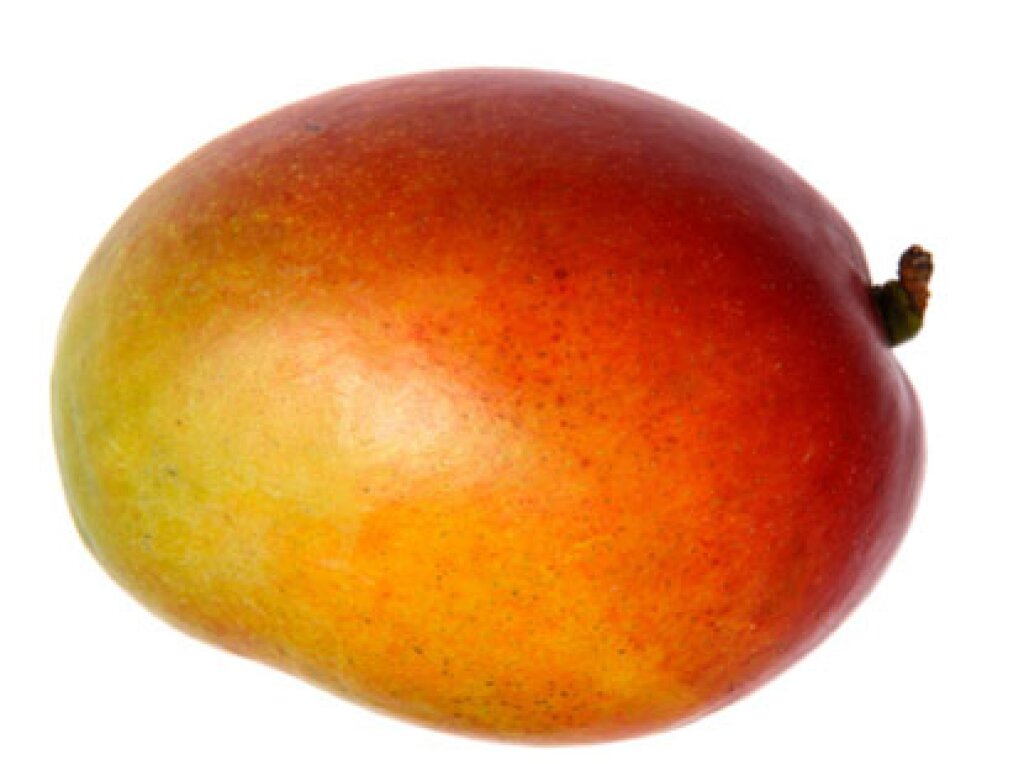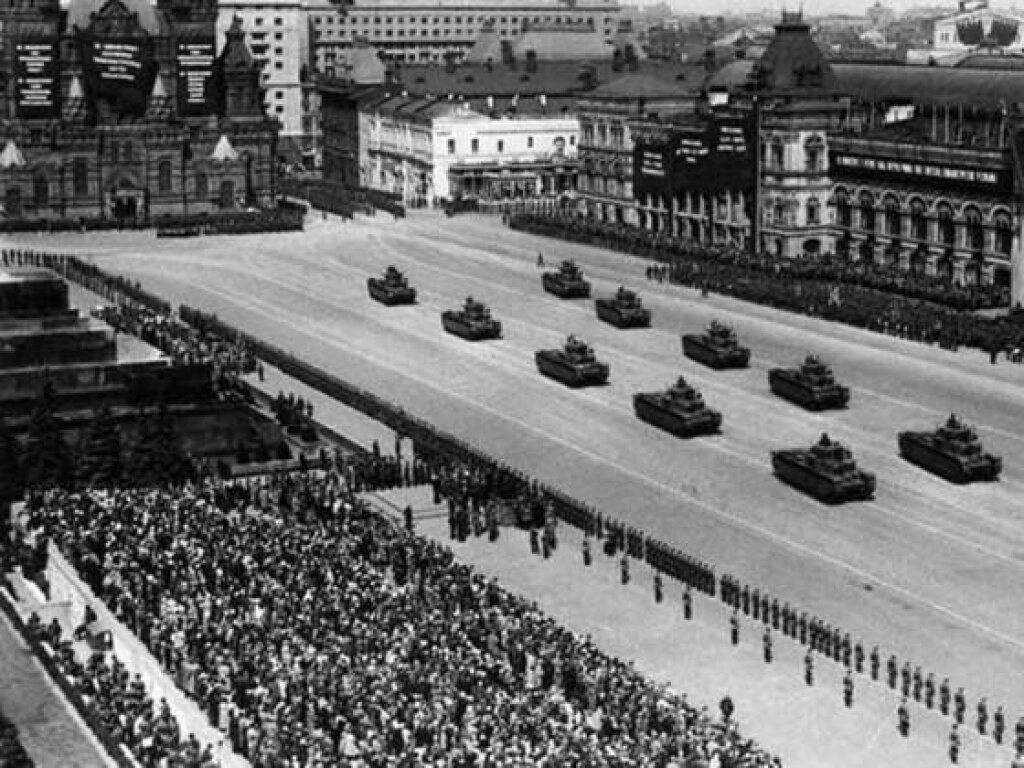Olga Nechaeva is a PhD Candidate in Comparative Literature and Literary Theory at the University of Pennsylvania.
I had been planning a research trip to Mali for over a year. During this time, the people in my life reminded me daily that visiting Mali was a terrible idea that I must be reckless even to consider. Indeed, Mali, a large land-locked country in West Africa, is not the safest place in the world. Since 2012, it has been in constant turmoil: three coups d’état in 10 years, active terrorist groups, constant attacks on UN peacekeeping forces that prompted their withdrawal, and alleged acts of violence by Russian mercenaries from the Wagner Group. Oddly, one of my acquaintances told me that the presence of the Wagner Group in the country is precisely the reason why I, a Russian citizen, would be perfectly safe there.
This was hard for me to believe. Wagner mercenaries have been in Mali for two years. In that time, as the non-profit project All Eyes on Wagner reports, the group killed, tortured, and sexually assaulted several civilians. In light of these events, I expected Malians to react negatively to my nationality. Imagine my surprise when I arrived in June 2023 to find that my Russianness was seen as a positive. Learning that I was from Russia, locals would smile, give me a thumbs up and say: “La Russie! Poutine! Wagner! C’est super!”
I wanted to understand why the Wagner Group is so popular in Mali and started to ask around. People believe that the group helps the Malian army fight terrorists more effectively than their Western partners do. Furthermore, in their eyes, French, German, and UN peacekeeping forces are “bad because they represent colonial powers, while the Wagner Group is “good” because Russia “is not a colonizer.” Referring to the ongoing war in Ukraine as a direct consequence of Russia’s imperial and colonial aspirations was not helpful. My interlocutors would immediately lecture me in the style of Kremlin propagandist Vladimir Solovyov, arguing that Russia is defending itself and not attacking anyone in unprompted fashion; that Putin was forced by NATO expansion to act as he acted; that NATO is pure evil and is the primary instigator of the war, and so on and so forth.
But what about the financial aspect, I wondered? Clearly, the Wagner Group is not “helping” for free. Mercenaries affiliated with the group have been scouting for gold since the end of 2021. Yet this fact does not seem to bother the local population. According to Malians with whom I spoke, potential gold extraction is not a big deal. Unlike France and other Western countries, Russia does not interfere in Malian domestic policy, and that’s all that matters.
I was still in Mali in June, when Evgeny Prigozhin began his march on Moscow. I asked Malians what they thought about it. To my surprise, most of my interlocutors had no idea it was happening. Many people did not know who Prigozhin was, and the few who did believed that it did not matter because the Wagner Group “ultimately belongs to Putin.”
Although the Russian Ministry of Foreign Affairs originally stated that the Russian authorities had nothing to do with the Wagner Group’s activities in Mali, my Malian acquaintances turned out to be right. Evgeny Prigozhin is dead, but Wagner’s mercenaries remain in Mali, and give no sign of leaving any time soon.
Walking the streets of Bamako, I did not see any material evidence of support for the Wagner Group, but did notice many indications of support for continued Malian-Russian relations. SOTRAMA mini-buses—a form of public transport—often featured images of the Russian president on their sides next to the words “Merci, Poutine.” Here and there you could see the Russian flag. “Why are there no Wagner flags? Or anything else specifically related to the group?” I asked. The answer was: “What for? Wagner is Russia. Wagner is Putin. Everybody knows it.”
I had traveled to Mali to research the Malian poet and playwright Gaoussou Diawara, who had studied in the Soviet Union at the Gorky Literary Institute in the 1960s. Diawara was one of the first students from the decolonized world to earn a scholarship for study in the Soviet Union. From 1960 to 1991, more than 43,500 students from Sub-Saharan Africa received a post-secondary education in the Soviet Union. Based on what I observed during my trip, Soviet education as a tool of soft power seems to have paid off. The reason why many African countries, including Mali, do not openly condemn the war in Ukraine while maintaining close ties with Russia is that many African leaders received a Soviet or Russian education and feel indebted to the country.
On 27-28 July 2023, the second summit of the Russia-Africa Economic and Humanitarian Forum was held in Saint Petersburg. Its very existence suggests that Russian influence in Africa will continue to grow. Six out of ten newly signed cooperation agreements between Russia and Mali relate to the field of education. Thus, Russian soft power will continue to impact Malian intellectuals and government officials, while Russian paramilitary structures, such as the Wagner Group, will retain their position for the foreseeable future. For Russian-educated Malians, close economic and military ties with the country have a clear positive effect in terms of income and professional advancement. How these same ties affect the lives of the unprivileged majority poses a complex, and worrisome, question.

